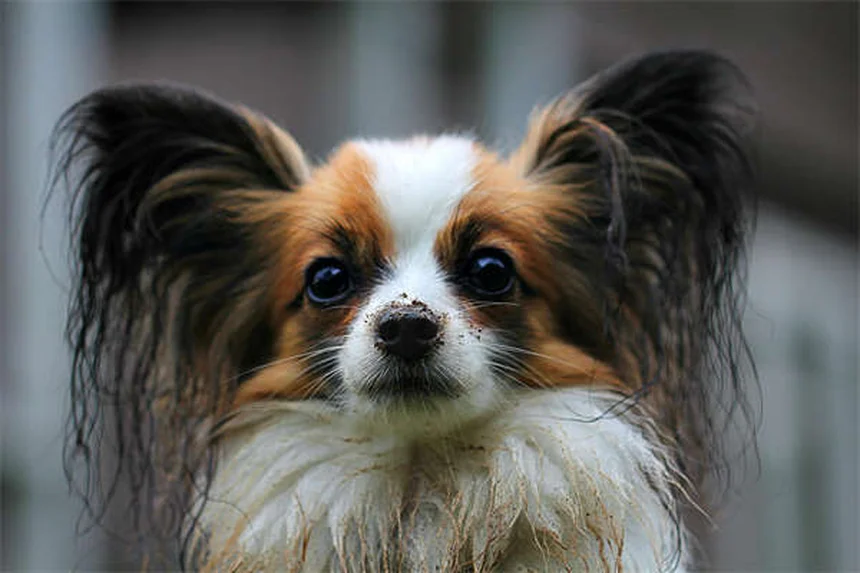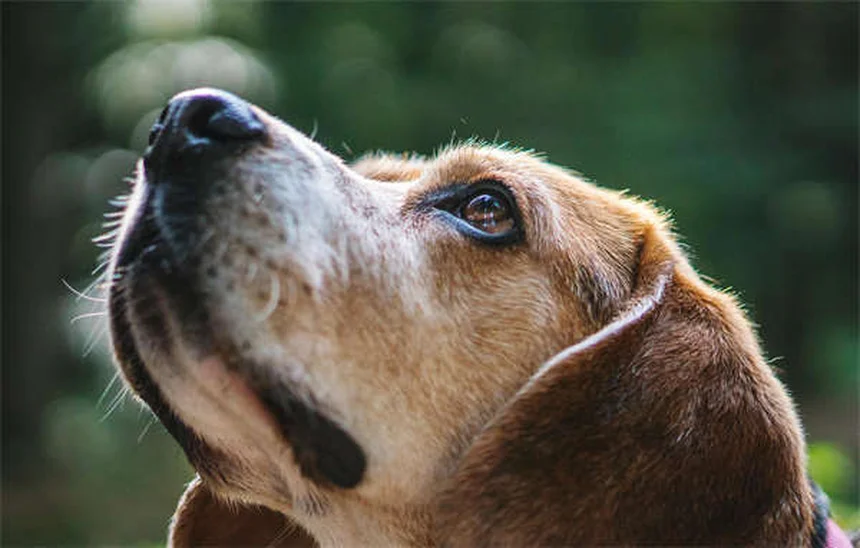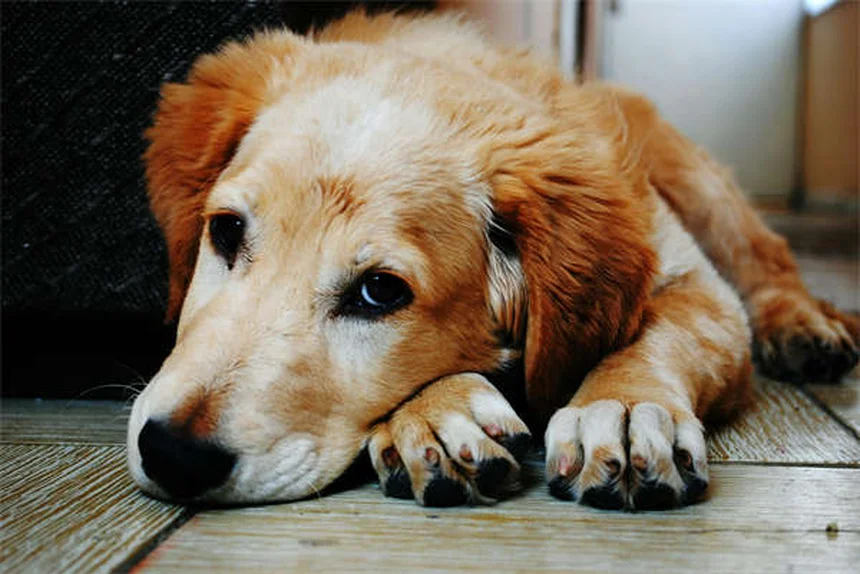How to stop your puppy from peeing in the house? The answer is simpler than you think: consistent scheduling and positive reinforcement are your golden tickets! I've trained over a dozen puppies in my years as a dog trainer, and let me tell you - every single one learned to hold it with the right approach.Here's the deal: your puppy isn't being stubborn when they have accidents. They literally can't control their tiny bladder until about 4-6 months old. My golden retriever Max used to pee every hour like clockwork at 8 weeks old - now he can hold it for 8 hours straight! The transformation happens when you understand their biology and work with it, not against it.In this guide, I'll walk you through exactly what worked for me and my clients - from reading potty signals to crate training secrets. You'll be amazed how quickly things improve when you've got the right system!
E.g. :Tylosin for Dogs and Cats: Vet-Approved Guide to This Powerful Antibiotic
Advertisement
- 1、Understanding Your Puppy's Bathroom Needs
- 2、Positive Training Techniques That Actually Work
- 3、Reading Your Puppy's Body Language
- 4、Solutions for When You're Away
- 5、Troubleshooting Persistent Problems
- 6、Advanced Potty Training Tips
- 7、Beyond the Basics: Advanced Puppy Care
- 8、Socialization and Potty Training
- 9、Tech Tools for Modern Puppy Parents
- 10、Life Stage Considerations
- 11、Traveling With Your Puppy
- 12、When to Seek Professional Help
- 13、FAQs
Understanding Your Puppy's Bathroom Needs
The Science Behind Puppy Bladder Control
You know how human babies need diaper changes every few hours? Puppies work the same way! Their tiny bladders can't hold much at first. Here's a fun fact: a puppy's bladder capacity grows about one hour per month of age. So your 8-week-old furball needs bathroom breaks every 2-3 hours.
Let me break this down with some real-world examples. When I trained my golden retriever Max, we started with hourly trips outside. Consistency is key - setting phone reminders helped me remember. By month four, we'd graduated to 4-5 hour intervals. The transformation was amazing!
| Puppy Age | Potty Break Frequency | Nighttime Dryness |
|---|---|---|
| 2 months | Every 2-3 hours | No (3-4 breaks) |
| 3 months | Every 3-4 hours | Maybe (2 breaks) |
| 4+ months | Every 4-5 hours | Yes (sleep through!) |
Creating a Potty Schedule That Works
Ever wonder why military families are so good at puppy training? They treat potty breaks like missions - scheduled, precise, and no excuses. You don't need to be that strict, but setting reminders on your phone makes life easier.
Here's what worked for my neighbor Sarah: after every nap, meal, play session, and before bedtime. That's about 8-10 trips daily initially. Pro tip: keep a log for the first week - you'll spot patterns you'd otherwise miss. Most puppies need to go within 15 minutes of eating or drinking.
Positive Training Techniques That Actually Work
 Photos provided by pixabay
Photos provided by pixabay
Reward-Based Training Beats Punishment
Remember when your mom caught you drawing on walls as a kid? Positive reinforcement works better than scolding - same goes for puppies! When little Bella does her business outside, shower her with treats and praise like she just won the puppy Olympics.
I made this mistake with my first dog - scolding him for accidents just made him hide his pee spots. With my current pup, we celebrate every successful outdoor potty with a mini party. The difference? Night and day! Three keys to success: immediate rewards, high-value treats, and enthusiastic praise.
What About Accidents?
Here's a question that stumps many new owners: "Why punish if they don't understand?" Great point! Puppies don't connect punishment with something they did hours ago. Instead, interrupt accidents with a gentle "Oops!" and whisk them outside.
My trainer friend swears by this method: keep leashes by every exit. When accidents happen (and they will), calmly leash and go outside. Clean thoroughly with enzymatic cleaner - regular cleaners leave scent markers saying "pee here again!"
Reading Your Puppy's Body Language
Common "I Gotta Go!" Signals
Puppies have tells like poker players. My lab mix does the "potty shuffle" - sudden sniffing followed by frantic circling. Your pup might:
- Whine or bark at the door
- Pace in obvious patterns
- Suddenly stop playing
- Sniff corners obsessively
Here's a funny story: my friend's dachshund would bring his leash when he needed to go. Smart cookie! Watch for your pup's unique signals - they're more obvious than you think.
 Photos provided by pixabay
Photos provided by pixabay
Reward-Based Training Beats Punishment
Ever considered teaching your dog to ring a bell? It's easier than you'd think! Hang jingle bells at nose height by the door. Every potty break, gently tap their nose against it before going out. Soon they'll ring it themselves.
This worked miracles for my busy sister. Her pup now rings the bell so hard it sounds like Christmas morning! Consistency matters - always use the same door and reward successful rings.
Solutions for When You're Away
Crate Training Basics
Think of crates as cozy dens, not puppy prisons. Dogs naturally avoid soiling their sleeping space. Size matters - too big and they'll use one corner as a bathroom. Just enough room to stand, turn, and lie down is perfect.
Start slow: meals in the crate with door open, then short sessions while you're home. My first crate-trained dog now voluntarily naps in his - it's his safe space during thunderstorms!
Alternative Options
Not all dogs take to crates. Puppy pens with pee pads work too. My neighbor uses a baby-gated kitchen with washable floors. Key points:
- Limit water 1 hour before leaving
- Always potty right before exiting
- Consider a pet camera to check in
Here's a thought: "What if my work schedule makes frequent breaks impossible?" That's tough, but solutions exist! Dog walkers, midday check-ins from neighbors, or even doggy daycare can bridge the gap.
Troubleshooting Persistent Problems
 Photos provided by pixabay
Photos provided by pixabay
Reward-Based Training Beats Punishment
If accidents continue past 6 months with proper training, medical issues might be the culprit. Common concerns include UTIs (frequent small pees), diabetes (excessive drinking), or anatomical abnormalities.
My cousin's terrier kept having accidents despite training. Turns out she had a bladder stone! After treatment, the accidents stopped. Red flags: straining to pee, blood in urine, or sudden changes in habits.
Behavioral vs. Medical Issues
How can you tell the difference? Medical issues often show other symptoms - changes in appetite, energy levels, or unusual behaviors. Pure behavior problems maintain normal health otherwise.
Keep a symptom diary for your vet: accident frequency, urine characteristics, and any odd behaviors. This helps pinpoint whether it's a training issue or something more serious.
Advanced Potty Training Tips
Weather-Proofing Your Routine
Rainy days test every puppy owner's patience. My golden used to refuse to go out in drizzle. Solution? We created a covered potty area with artificial turf. Now he'll go in monsoons!
For snow lovers: shovel paths to their spot. My Alaskan client uses colored flags to mark the potty area after heavy snowfalls. Pro tip: teach a "hurry up" command during nice weather - it pays off when it's miserable outside!
Transitioning to Full Freedom
That glorious day will come when your pup earns house freedom! Start with short unsupervised sessions in one room. Gradually expand as they prove reliable. My current success metric: two accident-free weeks per new area.
Remember my bell-training story? That system still works for my adult dogs - they ring when they need backyard access. The training never truly ends, it just evolves!
Beyond the Basics: Advanced Puppy Care
The Emotional Side of Potty Training
You ever notice how puppies get that guilty look after accidents? Here's the truth - they're actually reacting to your frustration, not understanding what they did wrong. That's why positive reinforcement works so much better than scolding.
I remember when my puppy Charlie had an accident right after I mopped the floor. Instead of getting mad, I took a deep breath and reminded myself - he's basically a toddler with fur. The calmer you stay, the faster they learn. Now when accidents happen, we treat it like a learning opportunity rather than a failure.
Nutrition's Role in Potty Success
What goes in affects what comes out! Cheap puppy food often means more frequent potty breaks because it's packed with fillers. When I switched to higher quality food, my pup's bathroom schedule became way more predictable.
Check out this comparison of how different foods affected my puppy's potty habits:
| Food Type | Potty Breaks/Day | Stool Consistency |
|---|---|---|
| Budget Kibble | 8-10 | Soft/Irregular |
| Mid-Range | 6-8 | Firm/Regular |
| Premium | 5-6 | Consistently Firm |
Socialization and Potty Training
Public Potty Etiquette
Ever seen someone let their dog pee on a storefront? Don't be that person! Teaching your pup appropriate public potty manners is just as important as house training. I always carry waste bags and choose grassy areas away from foot traffic.
Here's a trick I learned from a service dog trainer: teach a "go potty" command. It's incredibly useful when you're traveling or in unfamiliar places. My pup now understands "go potty" means business time, not play time!
Playdates and Potty Breaks
Puppy playdates are fun but can lead to accidents if you're not careful. Excitement peeing is real! I schedule play sessions right after potty breaks and watch for the telltale "I gotta go" dance mid-play.
When my friend's puppy comes over, we do a group potty break every 30 minutes. Sounds excessive, but it prevents accidents and teaches both pups good habits. Plus, they learn from each other - dogs are great mimics!
Tech Tools for Modern Puppy Parents
Smart Collars and Potty Tracking
Wearable tech isn't just for humans anymore! I tried a smart collar that tracked my puppy's activity patterns and predicted potty needs. Game changer - it learned his habits faster than I did and sent alerts to my phone.
The data showed something surprising - my pup always needed to go 22 minutes after drinking water. Who would've guessed? Now I set a timer religiously and we've had way fewer accidents.
Indoor Monitoring Systems
Ever wonder what your pup does when you're not home? A pet camera with two-way audio lets you check in and even give verbal commands remotely. I've caught my puppy mid-squat before and was able to say "outside!" through the speaker.
Here's a funny story - my camera once caught my pup ringing his potty bell when no one was home. Smart boy! I came home to reward him even though I missed the actual alert. Consistency matters, even when they think no one's watching.
Life Stage Considerations
Teething and Potty Regression
Did you know teething can cause potty training setbacks? When puppies are in pain, they sometimes forget their training. I noticed more accidents when my pup's adult teeth were coming in - turns out it's super common!
The solution? Extra patience and more frequent breaks. I kept frozen washcloths handy to soothe his gums and stuck to our potty schedule like glue. Pro tip: look for bloody chew toys - it's a sure sign teething has begun.
Spaying/Neutering Effects
Here's a question many owners don't think to ask: "Will fixing my puppy affect potty training?" Sometimes, yes! The anesthesia can cause temporary incontinence, and hormone changes might alter marking behaviors.
After my pup got neutered, we had to retrain him slightly. Male dogs often lift their legs after neutering, which changes their potty posture. We practiced the new stance with treats until it became second nature.
Traveling With Your Puppy
Road Trip Potty Strategies
Car potty training is a whole different ballgame! I learned this the hard way on a 3-hour trip with my puppy. Now we stop every hour, even if he doesn't seem to need it. Key items for travel: portable water bowl, extra towels, and enzyme cleaner.
I created a "car potty kit" that lives in my trunk: artificial grass pad, waste bags, and a collapsible playpen for rest stops. It's saved me countless messy situations and makes travel way less stressful.
Hotel Etiquette
Nothing's worse than a puppy accident in a fancy hotel room. I always request a ground floor room near an exit and bring my own pee pads just in case. First thing we do when checking in? Scout the perfect potty spot together.
Here's a clever trick from a hotel manager: use the shower curtain as a temporary playpen liner. It protects carpets while containing any accidents. Just remember to tip housekeeping extra if your pup has any mishaps!
When to Seek Professional Help
Signs You Need a Trainer
If you're feeling overwhelmed, you're not alone! I hit a wall with my stubborn terrier mix until we hired a trainer. The turning point was when she showed me how to read his subtle "I need to go" signals I'd been missing.
Consider professional help if: accidents continue past 6 months, your puppy seems anxious about pottying, or if you're just frustrated beyond belief. Sometimes a fresh perspective makes all the difference!
Behavioral Specialists
For persistent issues, a veterinary behaviorist might be needed. My neighbor's rescue pup had severe anxiety around pottying due to past trauma. The specialist created a customized desensitization program that worked wonders.
Remember - there's no shame in asking for help. Every puppy is different, and what works for one might not work for another. The important thing is finding what helps your furry friend succeed!
E.g. :Seriously though...how to stop puppy from peeing inside ? : r ...
FAQs
Q: How often should I take my 2-month-old puppy out to pee?
A: Every 2-3 hours is the magic number for an 8-week-old puppy. Here's why: their bladder capacity is about one hour per month of age. So your little furball physically can't hold it much longer than that! I set phone alarms religiously when training new puppies - it's easy to lose track of time during puppy cuddles. Pro tip: always go out after naps, meals, and play sessions too. My neighbor's lab needed to go within 10 minutes of drinking water - we learned that the hard way after three accidents!
Q: What's the best way to punish my puppy for peeing inside?
A: Here's the shocking truth: you should never punish for accidents! I made this mistake with my first dog - scolding just taught him to pee where I couldn't see. Instead, use positive reinforcement when they go outside. When my current pup Bella does her business in the right spot, we celebrate like she won the lottery! High-value treats and enthusiastic praise work wonders. If you catch them mid-accident, interrupt with a gentle "Oops!" and rush outside. Remember - they're not being bad, they're just being babies!
Q: How can I tell when my puppy needs to go out?
A: Puppies have clear "I gotta go!" signals if you know what to watch for. My lab mix does the "potty shuffle" - sudden sniffing followed by frantic circling. Other common signs include whining at the door, pacing, or abruptly stopping play. Fun fact: my friend's dachshund brings his leash when he needs to go! Train them to communicate by hanging bells at nose height - tap their nose against it before each potty break. Within weeks, my sister's pup was ringing those bells like Santa's sleigh!
Q: What should I do when I can't be home to let my puppy out?
A: Crate training saved my sanity when I worked office jobs! Dogs naturally avoid soiling their sleeping space. Start with short sessions while you're home, using treats to create positive associations. The crate should be just big enough to stand, turn, and lie down. For longer absences, consider puppy pens with pee pads or a dog walker. My current system? A pet camera to check in, and I always do a "last call" potty break before leaving. Pro tip: limit water 1 hour before departures to reduce accidents!
Q: When should I worry that my puppy's accidents aren't normal?
A: If accidents continue past 6 months with proper training, it's vet time. My cousin's terrier kept having accidents despite our best efforts - turns out she had a bladder stone! Watch for red flags: straining to pee, blood in urine, or sudden changes in habits. Keep a symptom diary for your vet including accident frequency and urine characteristics. Most pups master potty training by 6 months, so persistent issues might signal UTIs, diabetes, or anatomical problems. Better safe than sorry - that vet visit gave my cousin's pup instant relief!

